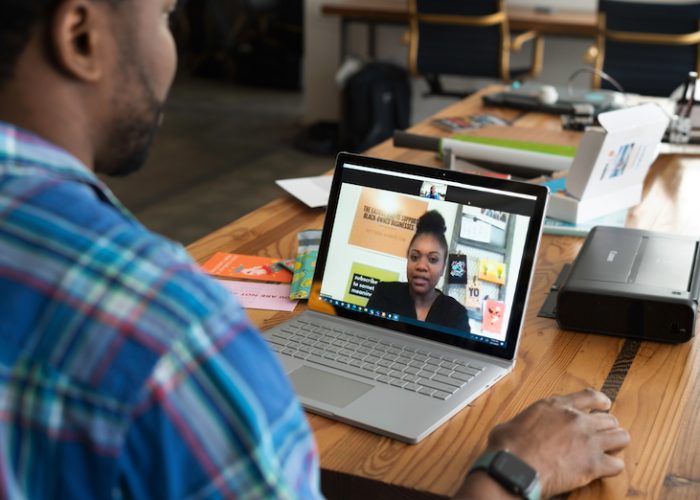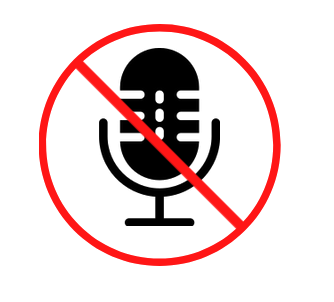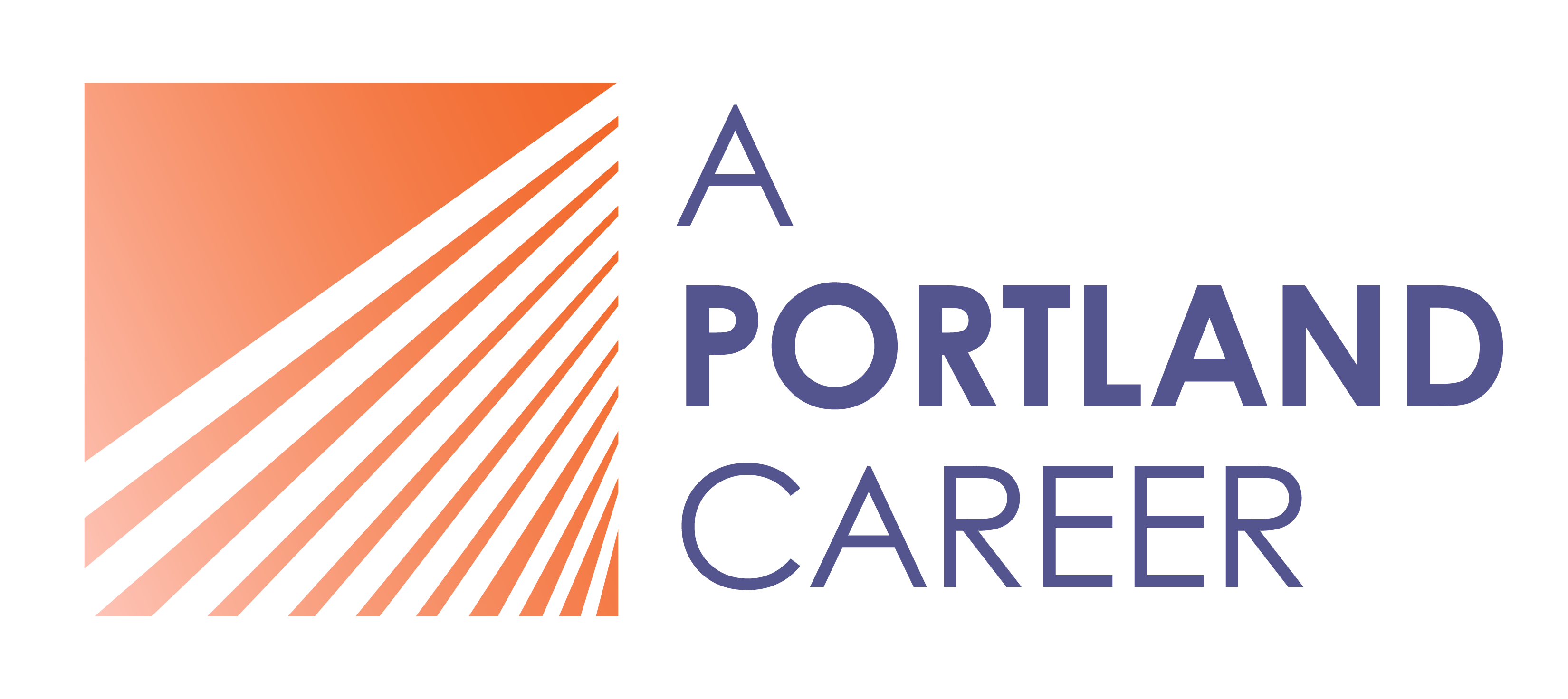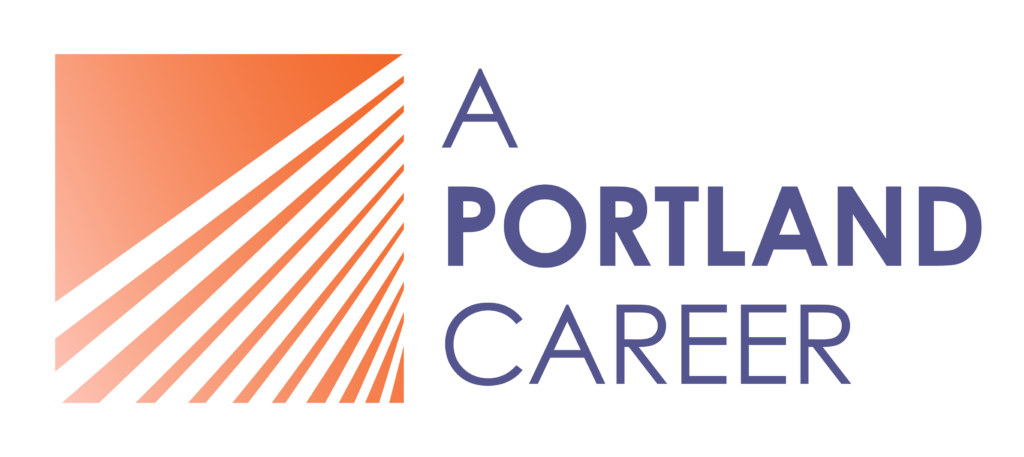Get insider interview tips that’ll help you nail the job interview and land your dream job!
Most employers now conduct virtual job interviews. Master these remote interview skills with tips from our career experts!
Virtual Job Interviews: Master the Art of Zooming It In!
By A Portland Career, and edited by Dan Hahn, M.S., and Suzie Sherman
Need practice to nail your interview? We’ve got you covered.

As if face to face interviews weren’t awkward enough, it’s time to get comfortable with the idea of your future boss considering your demeanor, style, AND your choices for kitchen, living room, or home office (ahem bedroom) decor! Recently, Indeed let us know 82% of employers now use virtual interviews in their hiring processes. 93% of them plan to continue using them indefinitely. Phone interviews and Video conferencing software make the hiring process more accessible, flexible, and much cheaper for employers. While Zoom, Google Meet, and Microsoft Teams are here to stay, your nerves don’t have to.
Virtual interviewing allows employers to screen more qualified candidates for open positions. It also helps them spend far less on the hiring process. Job candidates say remote interviews are less stressful than in-person interviews. There’s also greater flexibility to meet for multiple interviews from any remote location they choose.
If Indeed’s report about the new norm of virtual interviewing holds (and we think it will) it is important for job seekers to get familiar with virtual conferencing platforms, and more comfortable with online interviewing skills. For our complete guidance on interview prep, refer to our articles How to Prepare for your Next Job Interview and Advanced Job Interview Tips. Preparation for virtual interviews is pretty similar to in-person interviews, but with a few differences. Let’s get into it.
Home → Helpful Articles → Interviewing → Virtual Job Interviews: Master the Art of Zooming It In!
Here are more great posts about how to prep for your next interview:
- How to Prepare for Your Next Job Interview: The Career Expert’s Guide
- Advanced Job Interview Tips: Know Your Answer and How You’ll Say It
- The Best Interview Questions You Should Ask at Your Next Job Interview
- Interviewing As An Overqualified Candidate: Let’s Debunk Some Myths
- How to Ace the “Greatest Weakness” Question in Your Next Job Interview
- Answering Tough and Weird Interview Questions
- When and How To Say Thank You after Your Interview
If you’re still feeling anxious about interviewing, get in touch with us, and we’ll make sure your interviews start landing you more job offers.
On This Page

Is this a screening or a full-length interview?
It’s helpful to be proactive in your interview process, by determining whether your remote interview is just a screening or a full-length interview, so you can best prepare. When you receive an interview invitation through email, or a phone call from a hiring professional, it’s perfectly reasonable to ask if this will be a screening or a full interview. You can also ask what the next steps will be if you move on in the hiring process.
A screening:
- Is usually a brief review of your qualifications for the job, about 15 minutes on the phone or via video chat.
- Might be unscheduled. If a call comes unannounced, find a quiet place to talk, or ask to reschedule if you need to. It’s perfectly acceptable to say, “Thank you so much for calling. I’m heading out the door to an appointment. Can we schedule a call tomorrow at 10 a.m.?”
- Is conducted either by a recruiter or with the company’s human resources staff, not usually (but sometimes) with the hiring manager.
- Determines whether you will move on to a full interview, which can also be remote or in-person.
- Is the time for general questions about the company and the hiring process, rather than detailed questions about the position. In your screening, if there is a pause in the conversation, or your screener asks if you have any questions, you might want to break these general questions out of your pocket:
- What made me stand out as a candidate for this job?
- From your perspective, what is the company culture like?
- Which projects will I be the most involved with during the first six months?
- What are the next steps in the hiring process?
A full-length interview:
- Is usually conducted by the hiring manager and/or a hiring team.
- Is more extensive, and requires more preparation, including practicing your answers to common interview questions.
- Is often more formal, so dress to impress, whether via video or in-person.
- Might be the only interview, or one in a series of interviews, as you move through the hiring process.
- Is the time for more specific questions about the company and your potential role. Read up on the best kinds of questions to ask in your interview as a job candidate.
After a phone or video screening, you may get the sense that the job isn’t the right one for you. Nevertheless, you might still want to go through the next step of the interview process if it’s offered. This can be excellent practice, and you never know the full extent of a position from the initial phone call. It may turn out to be the perfect job!

All about video interviews
Video interviews (and video conferencing for remote work, in general) have become the new norm across many industries, particularly since the start of the COVID-19 pandemic. We highly recommend you set up a Zoom account, and get familiar with Google Meet and MS Teams. (Google Meet is the successor to Google Hangouts, which is being phased out in 2023.) Increasingly, we’re seeing employers use recruitment software integrated with video meeting capabilities, like Spark Hire and HireVue, too.
Video conferencing 101
If you are not used to video calls, set up some meetings with friends or family and get comfortable with it to minimize glitches. Once you have set up the apps, make sure you familiarize yourself with the interface ahead of time, so you aren’t fumbling with the camera and microphone on/off toggle buttons.
Read our post about the most essential tech and social media for job seekers. Video conferencing fluency is a non-negotiable skill for job search and career exploration!
In addition to setting up your video conferencing accounts, make sure you have:
- A computer with a reliable internet connection.
- A separate webcam with microphone if your computer doesn’t have a built-in camera or mic.
- Headphones or earbuds: very helpful to reduce feedback noise.
- A reasonably quiet space for your video meeting.
Pro tips for successful video interviews
Make sure your video interview is successful by preparing ahead of time, looking sharp and professional, preparing your physical space, and maximizing eye contact during the call. Last thing: remember to ask for your interviewer’s contact info for follow-up.
- Plan ahead: We can’t stress this enough. Do not show up to an interview, whether face-to-face or online, without:
- Reviewing the job description
- Researching the company and your hiring team (LinkedIn and the company website are great places to start) and
- Making sure you practice your answers to common interview questions.
- Dress the part: Make sure that your hair and face are groomed, and you are professionally dressed. Looking your best will boost your confidence and send the signal that you are taking the interview seriously, even if you just rolled out of bed.
Set the stage: Your surrounding environment will be visible on the webcam, so make sure the room you are in is clean and tidy. Set a light source so that your face is well-lit (preferably at a 45 degree angle overhead and diagonal from your face), and sit against an appropriate background: a plain, blank wall, a potted plant, or a bookcase behind you are classics.
Don’t get too fancy: We don’t recommend a virtual background, unless you have a proper green screen set up. Otherwise, your face might fade in and out during the meeting, which is disruptive. Keep it simple.
- Put a smile on your face: Just as you would during an in-person interview, smile and appear engaged in the conversation throughout. Maintain eye contact as much as you can (see below for an important note on eye contact).
- Wrapping up: End the interview warmly, and ask for the hiring manager’s name and their email address so that you can send a follow-up thank-you note or email. Ask for the correct spelling and pronunciation of the interviewer’s name. Read more about how and when to send a thank-you note after your interview.
Eye contact during your video interview
To make a good impression, and to facilitate as natural an interview experience as possible, remember to look into the camera lens as much as you can. A common mistake during a video call is to stare at the interviewer’s face on your computer screen (or at your own, because it’s an easy distraction!) When you do this, from the interviewer’s perspective, you appear to be looking down, which can give the impression you are avoiding eye contact. This is not the message you want to convey during a job interview.
The camera lens is usually at the top center of your laptop screen; if you’re using a detached webcam, it’s usually perched on top of your monitor. If you can position your laptop or monitor so that the lens is at eye level, you have a better chance of training yourself to look directly into it. You will find yourself looking at the screen from time to time. Just remember to make an extra effort to look at the camera lens at these critical times in the interview:
- When you say hello at the beginning
- While the interviewer is asking you a question
- When you ask a question
- When you want to emphasize an important point
- As you are concluding an answer
- As the interview is wrapping up and you are saying your good-byes
Kim’s Pre-Recorded Video Screening: Kim, one of our clients, was asked to record a video of herself answering a series of questions, and then send the recording to the HR department at the company she applied to. The same principles apply to these “one-sided” video interviews.” Just pretend the interviewer is on the other end of your screen and answer the questions as if you were talking to a real person, remembering to smile, look into the camera lens, and be engaging.

Successful phone interviews
Phone interviews allow you to have a conversation with an interviewer or screener while enjoying your morning coffee in your pajamas. Nevertheless, there are still some things to keep in mind to ensure a successful phone interview:
- Find a quiet location and a convenient time: Ensure that your attention is 100% on your conversation with the interviewer or screener.
- Body stance and energy: Speak directly into the phone, and smile while speaking. Believe us: this adds an enthusiastic and energetic tone to your voice. Take the call standing up or pace if you need to. This helps with breathing, dispels nerves, and elevates your confidence. If you are a kinesthetic type, pacing or walking will help you organize your thoughts and think creatively.
- Hold up your end of the conversation: Respond with interest to the interviewer’s statements. Simple phrases like, “Oh, that’s interesting!” “Yes, I see;” even simply an “uh-huh,” or “okay” are verbal equivalents to the positive body language you can show when you are in a video meeting or in-person interview.
- Ask questions: Let the interviewer guide the conversation, but have some questions at the ready, as we mentioned above.
Final thoughts on virtual job interviews
As virtual interviews have become the norm across fields, with upwards of 80% of employers using video conferencing in the hiring process, it is vitally important to get familiar with this new virtual environment. The same rules for in-person interviews apply, in that you must prepare yourself ahead of time, practice your answers to common interview questions, and dress for success (unless you’re on the phone!) In this article, we have also given you the specifics on remote interview strategies to prepare you for fluent use of video conferencing software, discerning the difference between a screening and a full interview, and presenting yourself naturally and confidently in online interview environments.
Key takeaways
- According to an Indeed study across industries, more than 80% of employers are utilizing video conferencing environments in the hiring process.
- You are very likely to have a job screening or a full-length interview conducted remotely online.
- You should download any virtual meeting software and familiarize yourself with it in advance of your interview to avoid glitches and fumbling with cameras and microphones.
- It is important to ask the recruiter or interviewer whether you will be participating in a screening, or a full-length job interview, and how the hiring process will proceed.
- The same rules apply in virtual interviews as with in-person interviews. You must take time in advance to prepare for your interview by researching the company and the hiring manager or hiring team; studying the job description; and practicing common interview questions.
- Virtual interviews also present unique challenges that you must address: you need to get comfortable with video and phone virtual conferencing software; you need to prepare your physical environment to ensure a successful meeting; you need to pay special attention to maintaining eye contact and positive energy in a different way than if you were sitting in the same room as your interviewer.
- Remember to ask for your interviewer’s contact information and follow up, just like you would for an in-person interview.
Related articles you might be interested in:
When and How To Say Thank You after Your Interview
Thank you notes never go out of style! Here’s what to include in a thank you note or email after the job interview.
Advanced Job Interview Tips: Know Your Answer and How You’ll Say It
The best job interview tip: prepare! Confident tone, eye contact, and answers to common interview questions are all skills you can, and should, practice!
The 25 (plus 10!) Most Common Job Interview Questions
Nail your next job interview by preparing for these 25 (plus 10!) most common interview questions.





